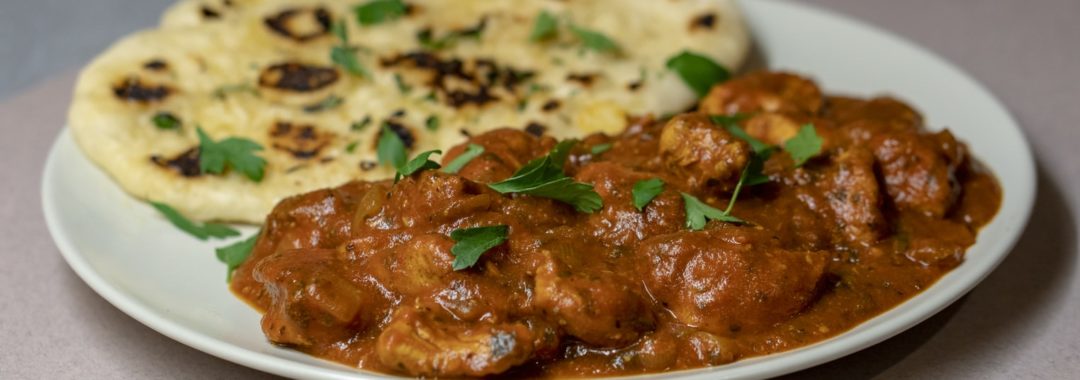Here’s Why Curry Makes You Feel So Great
Who knew a spice could be so powerful?
From the warmth of the dish to the mouth-watering blend of flavors, curry is certainly the height of comfort food. But let’s dive deeper into the mystery of curry’s deliciousness–what about it specifically makes it so gosh darn tasty and healthy? We at HungerPass embarked on a spice-filled journey to answer this very question, and what we found is truly surprising!
Strip away the bells and whistles, and what is a traditional curry made with? Aside from general ingredients like tomatoes, peppers, and onions, we discovered from Food & Wine and The Guardian that the secret to curry’s timeless taste is in the spices. Each grain of spice is more powerful than we thought–check out how powerful these spices truly are below!
Garlic Cloves
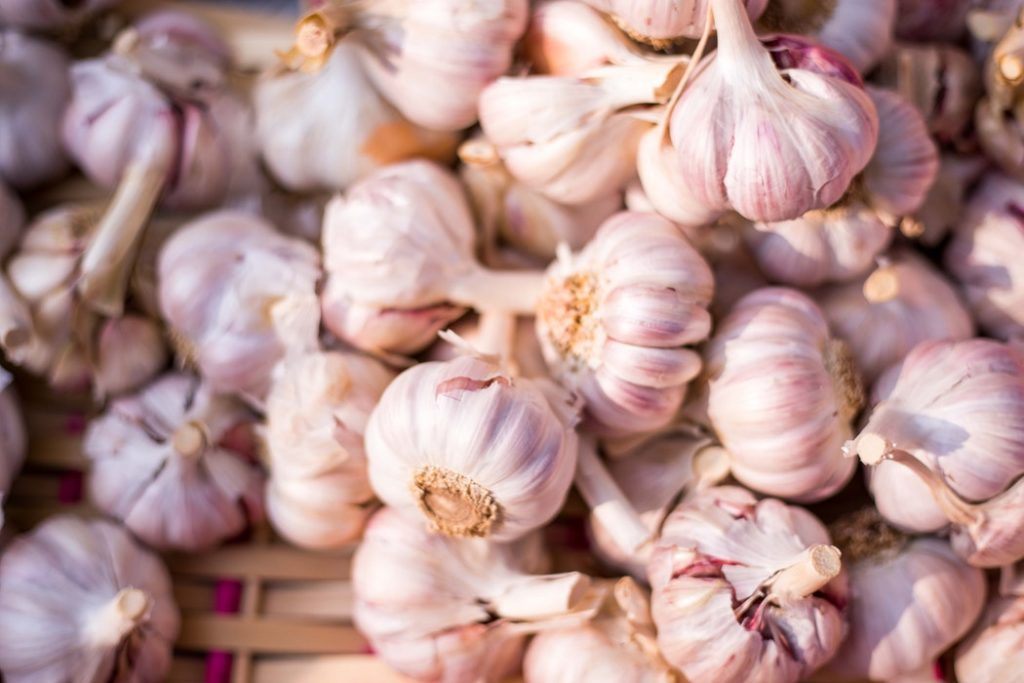
Garlic is more of an herb than a spice, but we couldn’t talk about surprisingly healthy curry ingredients without mentioning it! We think it’s safe to say that garlic is everyone’s favorite flavor, and for good reason–it adds an earthy, cozy taste to every meal, from pizza and pasta to curry.
Garlic is a historically beloved member of the onion family due to its strong medicinal properties. Most of its health benefits are from sulfur compounds formed when a garlic clove is chopped or crushed. Garlic is also believed to decrease the severity of illnesses like the common cold and the flu. The believed benefits don’t stop there: They’re also believed to help lower cholesterol, prevent Alzheimers & Dementia, and reduce blood pressure. If you’re convinced of the near-miraculous health properties of garlic, you can even buy garlic supplements to add to your morning medicinal regimen. They may leave a garlicky taste in your mouth, but just think how much better you’ll feel!
Ginger
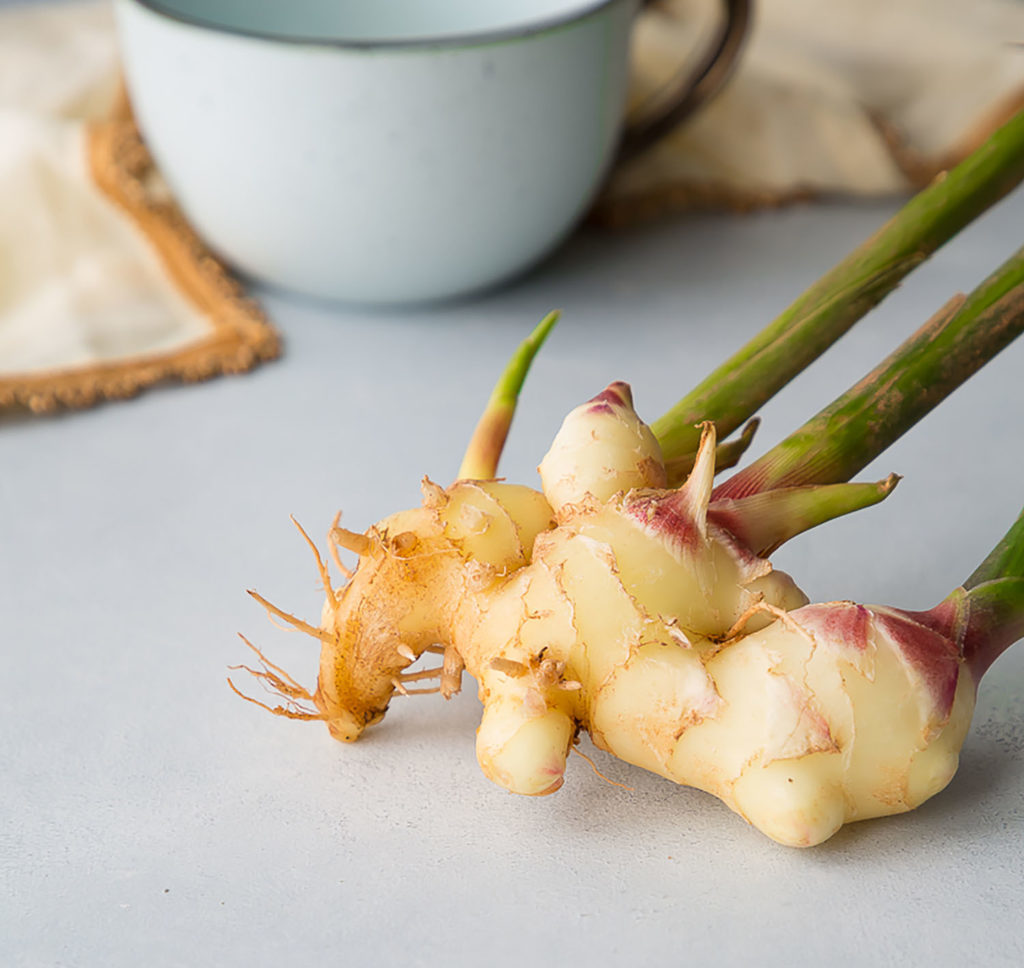
Ginger has a super strong flavor, like garlic, but instead of “sticking around” your palate, ginger is something of a palate cleanser–it has an invigorating and oh-so-spicy taste that leaves your mouth feeling fresh. Ginger is frequently used as an appetizer or palate cleanser since it can stimulate your appetite while preparing your digestive system for food.
Still, if your mom was like most moms, you probably connect ginger to something else–ginger ale! Ginger ale is often used to help abate an upset stomach/indigestion, and the actual ginger root contains even stronger health benefits. Its anti-inflammatory properties are well-known in the organic food world and can help relieve arthritis pain and nausea. It’s even thought to prevent cancer by impeding carcinogenic activity, improving respiratory conditions, and increasing appetite. You’ve probably seen ginger outside of the grocery store in recent years, as it’s often found in soaps, shampoos, oils, and perfumes.
Cumin Seeds
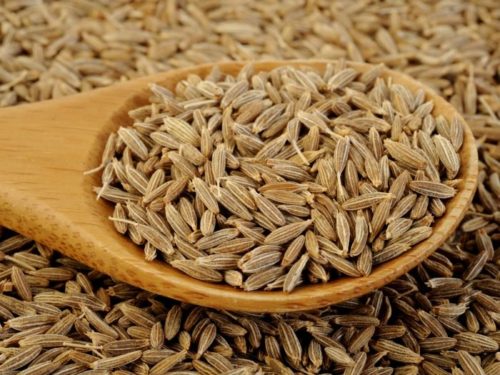
Photo Credit: Organic Facts
You’ll find cumin in many Mediterranean and Asian dishes, and it’s an important ingredient in most curries. It adds a nutty, wholesome warmth to any recipe. The health benefits of cumin are numerous, and there’s even early research linked to cumin implying that it can reduce withdrawal symptoms and narcotic dependence in addicts.
Like ginger, cumin has most commonly been used to help prevent indigestion. Digestive enzymes are necessary for proper digestion, and cumin is thought to increase the activity of these enzymes, leading to better gut health. Also, if you often find yourself feeling fatigued or low-energy, try making something with cumin seeds: They’re naturally rich in iron, which can help support growth in young kids and restore energy in adults!
Since cumin is also high in plant compounds such as phenols and alkaloids, they act as antioxidants, which reduces damage from free radicals, which in turn helps prevent oxidation. Since oxidation can lead to clogged arteries and heart disease, it’s safe to say that cumin seeds are an incredibly important addition to anyone’s diet.
Fennel Seeds

Photo Credit: Farm Yard Nurseries
Perhaps what makes fennel such a surprising spice is that its sweet, aromatic seeds come from a coarse plant that grows primarily in the wild. Fennel seeds add a licorice-like taste to any dish it’s used in, which makes it a uniquely sweet spice when compared to the “hot” spices used in curry. When consumed in moderation, fennel can also be extremely beneficial to one’s health due to its high concentration of vitamins and minerals.
Fennel is a rich source of dietary fiber, which helps ease digestive issues like constipation. It’s a great source of important vitamins and minerals such as Vitamin A, Vitamin E, and Vitamin C, as well as potassium, zinc, and magnesium. Not only can fennel be used to help relieve coughs and even bronchitis, but when used in a topical form, it can help cure joint pain. When used with a pediatrician’s blessing, fennel can even be used to relieve colic in newborn babies. Seems like everyone in the family can benefit from some sweet fennel seeds!
Cinnamon Stick
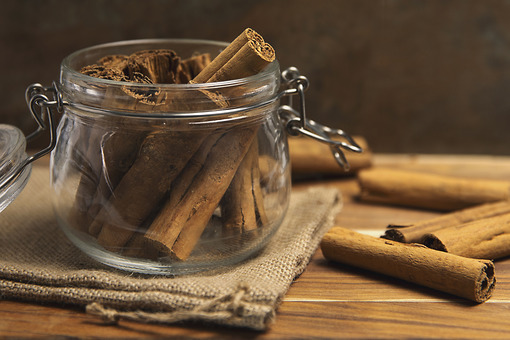
Photo Credit: Nuts.com
These days, what can’t you do with cinnamon? It’s practically everywhere–tea, gum, toothpaste–and for good reason, given its palate-cleansing, sweet-yet-spicy flavor. It really adds something special to any dish, whether you’re adding it to cozy, just-out-of-the-oven sticky buns, a hearty turkey recipe, a refreshingly cool frappuccino, or a traditional curry. But cinnamon’s famous qualities don’t end there–it’s also well-known for all the ways it helps us to feel great!
Of all the spices on this list, cinnamon just may have the strongest antioxidant properties, which helps keep your heart healthy and your immune system fully functioning. It’s also believed to help lower blood sugar and fight diabetes. Fascinatingly, studies have also shown that cinnamon may even provide mental benefits by improving memory and overall cognitive function. Many of these studies are still in their early stages, but they’ll certainly make you think the next time you sprinkle some cinnamon onto your morning oatmeal or, in this case, swirl a cinnamon stick through your homemade curry.
Turmeric
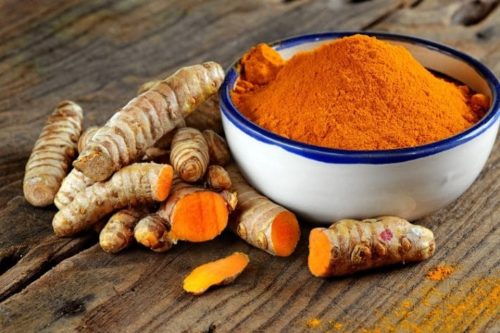
Photo Credit: Life Spa
It’s vibrant, it’s earthy, it’s distinctly spicy–it’s turmeric! Though Western medicine has only just begun to seriously study turmeric as a pain reliever/healing agent, it has long been a medicinal staple in India. What makes turmeric so universally praised is curcumin, the active ingredient in turmeric that makes it a seriously impressive spice. It not only makes food delicious (and adds that delightful yellow color to curry,) but it helps you digest that food with ease, especially if you suffer from gastrointestinal issues such as IBS. It’s also known to have powerful pain relieving properties, so if you or anyone you know suffers from arthritic joint pain, consider adding more turmeric to your diet.
Like cinnamon, turmeric is also getting some attention due to its antioxidant abilities. In fact, it seems to be so powerful that it could help prevent your liver from being damaged by toxins. This is encouraging news for anyone who takes prescription drugs with diabetes, as it helps protect one’s liver from the harmful effects of long-term drug use. If you want to benefit from health-happy effects of curcumin, taking it in capsule or supplement form is probably the best way to go, as turmeric itself, while a tasty source of curcumin, really only contains a small percentage. Still, it’s hard to believe that such a health-happy spice exists right under our very noses!
So what do you think of these surprisingly healthy spices? Do you add anything to curry to give it a special kick? Let us know your thoughts in the comments!
Written by Emma Patterson
